Warning: Don’t Fall For These Common Residential Softwashing Cost Myths in 2024
Warning: Don’t Fall For These Common Residential Softwashing Cost Myths in 2024
Introduction:
Did you know that the average homeowner wastes a staggering $300 every year on cleaning methods that barely make a dent in their home's exterior? This eye-opening fact is the starting point of our discussion on soft washing costs. Now, let's delve into the world of residential softwashing cost myths. This innovative cleaning method is not just a trend; it's a game-changer. Imagine giving your house a gentle bath instead of subjecting it to a high-pressure beating. It's a method your home will truly appreciate.
Having been in the home maintenance game for years, I can tell you that there's more misinformation about soft washing costs than leaves in my gutters after fall. It's enough to make your head spin, but don't worry—I've got your back.
But don't worry—I've got your back. In this article, we'll roll up our sleeves and bust open 7 of the most common myths about residential soft washing costs. By the time we're done, you'll be armed with the knowledge to make intelligent decisions about keeping your home's exterior sparkling clean without breaking the bank. So, please grab a cup of coffee and dive in!
Myth 1: Softwashing Is Always More Expensive Than Pressure Washing
Alright, let's tackle this whopper of a myth head-on. I can't tell you how many times I've heard folks say, “Softwashing? No way, that's for the rich and famous!” Well, buckle up because I'm about to blow your mind.
Sure, at first glance, softwashing might seem like it's gonna cost you an arm and a leg. When I first looked into it, I nearly choked on my coffee when I saw some of the prices. But here's the thing – we have to think long-term, people!
I'll be sure to break it down for you. Pressure washing is like using a sledgehammer to hang a picture frame. Sure, it'll get the job done, but at what cost? I learned this the hard way when I pressure-washed my mom's vinyl siding. It didn't end well, and my wallet felt much lighter after the repairs.
Softwashing, on the other hand, is more like using a feather duster. It's gentle, effective, and – here's the kicker – it actually saves you money in the long run. How, you ask? Well, pull up a chair, and I'll tell you.
First, soft washing uses specialized solutions that don't just clean; they protect. It's like giving your house a shield against dirt, grime, and those pesky algae that love to set up camp on your siding. This means you won't need to clean as often, and that's money in the bank, my friends.
Secondly, because softwashing is gentler, it doesn't damage your surfaces. No more replacing siding, repainting, or fixing up damaged mortar. Trust me, those repair bills can add up faster than my waistline during the holidays.
Now, let's talk numbers. I recently helped my buddy Steve compare costs for his colonial-style home. A pressure washing quote was $300, while softwashing was $400. Steve was ready to do the pressure washing until I showed him the math.
With pressure washing, he'd need to do it every year, and there was a good chance he'd need to repaint in about 5 years. Softwashing? Once every 2-3 years, his paint job would last nearly twice as long. After 10 years, pressure washing would've cost him about $3,000 plus a $5,000 paint job. Softwashing? About $2,000 total.
Steve's jaw hit the floor when he saw those numbers. Needless to say, he went with softwashing, and his house looks amazing. Last I heard, he was using the money he saved to build that man cave finally he's been dreaming about.
So, next time someone tells you softwashing is always more expensive, you can set 'em straight. It's not about the upfront cost – it's about the long game. In this game, softwashing comes out on top, saving you a bundle while keeping your house looking like it's ready for a magazine cover shoot.
Myth 2: DIY Softwashing Is Always Cheaper Than Hiring Professionals
Oh boy, this myth is a doozy. I get it—we all love a good DIY project. Heck, I once tried to build my deck. Let's say it looked more like abstract art than a place to enjoy a cold one on a summer evening. But when it comes to soft washing, the DIY route isn't always the money-saver it's cracked up to be.
Now, don't get me wrong. If you're handy and have the time, DIY soft washing can save you some cash. But—and this is a big but—some hidden costs can sneak up on you faster than my cat when I open a can of tuna.
First, let's talk equipment. You'll need more than just a garden hose and some elbow grease. We're discussing a good-quality pump sprayer, safety gear, and cleaning solutions. I cheaped out on the sprayer when I first tried DIY soft washing. This was a big mistake. It broke halfway through the job, and I spent more on a better one. Lesson learned: buy nice or buy twice.
Then there's the learning curve. Oh boy, is there a learning curve? I remember my first attempt at mixing softwashing solutions. Let's just say I ended up with a concoction that was about as effective as washing my house with pickle juice. I had to buy more materials and start over. Ka-ching! There goes more money down the drain.
But here's the real kicker—the risks. One wrong move, and you could be looking at some serious damage. I've seen it happen. My neighbor Dave thought he'd save a few bucks by DIY soft washing. Long story short, he used the wrong solution concentration and bleached his beautiful cedar siding. What is the cost of fixing that mistake? Let's just say it was enough to make your eyes water.
Now, let's compare this to hiring a pro. Sure, the upfront cost might be higher. But think about what you're getting. These folks have the right equipment, the know-how, and, most importantly, insurance. You're covered if something goes wrong (which is rare with pros).
Plus, they're efficient. What might take you a whole weekend of trial and error? They can knock you out in a few hours. And let me tell you, time is money, folks.
I did a little experiment last year. I DIY soft-washed one side of my house and hired a pro for the other. The pro side was spotless, even cleaning, and done in no time. My side? Well, let's just say it was a bit patchy. And it took me two full days, a sore back, and a few choice words my neighbors probably didn't appreciate hearing.
When I added up the cost of materials, equipment rental, and my time (yeah, your time is valuable, too!), it actually worked out about the same as hiring a pro. But the pro side looked way better, and I didn't have to spend my weekend on a ladder questioning my life choices.
So, before you jump on the DIY bandwagon, do yourself a favor and get a quote from a professional. You might be surprised that the cost difference is smaller than you thought. And trust me, your weekends are better spent enjoying your clean house, not scrubbing it.
Myth 3: All Softwashing Services Are Priced the Same
Hoo boy, if I had a dollar for every time I heard this one, I'd have enough to soft-wash every house on my block! Let me tell you, thinking all soft washing services are priced the same is like saying all restaurants serve the same quality food. It just isn't true, folks.
When I first started looking into softwashing for my home, I thought I'd be clever and go with the cheapest quote. Big mistake. Huge. I ended up with a job about as thorough as my teenager's attempt at cleaning their room. Learn from my mistakes, people!
Here's the deal: softwashing prices can vary more than my aunt's mood swings. And there are good reasons for that. First off, you've got different types of equipment. Some companies invest in top-of-the-line gear to sparkle your house like a diamond. Others… well, let's say they might as well be using a squirt gun.
Then there's the experience factor. A company that's been in the game for years, like my buddy Mike's business, knows all the tricks of the trade. They can spot potential issues before they become problems and know which solutions to use for different surfaces. That expertise? It's worth its weight in gold.
But here's where it gets really interesting. Some companies offer package deals. They might throw in gutter cleaning or window washing. Others might include a protective coating that keeps your house looking fresher for longer. It's like getting the deluxe car wash instead of the basic spray-down.
Let me tell you about when I helped my sister get quotes for her Victorian-style home. Talk about an eye-opener! We got five quotes, and I kid you not—the highest was nearly triple the lowest. At first, we were tempted to go with the cheapest option, but then we started asking questions.
It turned out that the lowest quote didn't include cleaning the intricate trim work. The highest quote? They would hand-clean all the delicate areas and use a special protective coating designed for historic homes. Suddenly, that price difference made a whole lot more sense.
So, what's a homeowner to do? First off, get multiple quotes. I'm talking at least three, but five is even better. And don't just look at the bottom line. Ask questions! What's included? What kind of equipment do they use? How long have they been in business?
And let me give you a pro tip: be wary of quotes that seem too good to be true. If someone offers to softwash your mansion for the price of a pizza, there's probably a catch. Maybe they're using watered-down solutions or need to be insured. Either way, it's a risk you want to avoid taking.
Conversely, the most expensive option is only sometimes the best, too. I once saw a sky-high quote, and when I dug deeper, they were charging a premium for a fancy-sounding “proprietary” solution that was basically the same stuff everyone else uses.
The sweet spot? It's usually somewhere in the middle. Look for a company that offers a fair price, has good reviews, and can clearly explain what you're getting for your money.
Remember, folks, when it comes to softwashing, you often get what you pay for. It's an investment in your home, and doing it right can save you a ton in the long run. So avoid falling for the myth that all services are priced the same. Do your homework, ask questions, and choose the option that gives you the best bang for your buck. Your house will thank you!
Myth 4: Softwashing Requires Expensive, Specialized Equipment for Homeowners
Alright, buckle up, folks! We're about to bust another myth wide open. You know, I used to believe this one myself. I thought I'd need to mortgage my house to buy the equipment for softwashing. Boy, was I wrong!
Let's get one thing straight: while the pros use some fancy gear, you don't need a NASA-level setup to softwash your own home. In fact, you might already have some of the basics lying around your garage.
First things first, let's talk about the bare essentials. You'll need a pump sprayer, cleaning solution, and safety gear. That's it. There is no need for a second mortgage or selling your firstborn. I picked up a decent pump sprayer for about $50 when I first started. It wasn't top-of-the-line, but it got the job done.
Now, I know what you're thinking. “But what about those high-powered sprayers I see the pros using?” Well, here's a little secret: you only need some of that horsepower for most residential jobs. It's like using a flamethrower to light a birthday candle. Sure, it'll work, but it's overkill.
I just wanted to tell you about my neighbor, Bob. He bought this fancy soft washing rig, which cost him an arm and a leg. Meanwhile, I'm over here with my pump sprayer and getting the same results. Bob's wife wasn't too happy when she saw their bank statement, let me tell you.
But here's where it gets exciting. If you plan to softwash your home once in a blue moon, you don't need to buy the equipment. Rental is your best friend here. Most hardware stores rent out pump sprayers and other cleaning equipment for a fraction of the purchase price. It's like borrowing your neighbor's lawnmower, except you don't have to listen to them brag about their garden for an hour.
I remember the first time I rented a sprayer. I felt like a kid in a candy store. For about $30 a day, I had access to a decent setup. And let me tell you, it was more than enough to get my house looking spick and span.
Now, if you're the DIY type who loves a project (I see you, fellow weekend warriors), you might be tempted to invest in some fancier equipment. And that's cool, too. But before you do, could you ask yourself: how often will I use this? If the answer is “every other year,” maybe stick with renting or the basic setup.
I learned a pro tip: start small and work your way up. I once jumped in headfirst and bought this complicated sprayer system. It turned out to be like trying to pilot a spaceship when all I needed was a bicycle. I ended up selling it at a loss and going back to basics.
Remember, folks, the most expensive tool is not always the best for the job. It's all about finding that sweet spot between effectiveness and cost. And when it comes to softwashing, that sweet spot is not as costly as you might think. In fact, it's a cost-effective way to keep your home looking like a million bucks.
So next time someone tells you you need to break the bank on specialized equipment for softwashing, you can set them straight. With a little ingenuity and some smart shopping, you can get your house looking like a million bucks without spending nearly that much. Softwashing is not just effective, it's also affordable, giving you the peace of mind that you're not overspending on home maintenance.
Myth 5: Frequent Softwashing Is Necessary and Costly
Oh boy, this myth really gets my goat. I've seen folks softwashing their homes more often than I change my socks! Okay, maybe that's an exaggeration, but you get the point. Let's set the record straight on this one.
First, your house isn't a showroom car that needs a weekly wash. In fact, over-cleaning can do more harm than good. It's like washing your favorite t-shirt every day – sure, it'll be clean, but it'll wear out faster than you can say “detergent.”
Now, I used to be guilty of this myself. After I discovered soft washing, I was like a kid with a new toy. I wanted to clean everything all the time. My poor house looked like it was preparing for a beauty pageant every other weekend. Not only was I wasting money on cleaning solutions, but I was also risking damage to my home's exterior.
So, what's the magic number? Well, for most homes, soft washing once every 18 to 24 months is plenty. Of course, this can vary depending on your location. If you live in a humid area where algae grow faster than my neighbor's prize-winning tomatoes, you might need to do it annually. But for most of us, every other year is just fine. This reassurance can help you plan your softwashing schedule without feeling the pressure to do it more often than necessary.
I just wanted to tell you about my buddy Jim. He got it into his head that monthly soft washing was the way to go. Six months in, his wallet was much lighter, and his paint started to show signs of wear. It turns out that even gentle cleaning can be too good if you overdo it.
Now, here's where the real savings come in. By spacing out your soft washing sessions, you're not just saving on the cost of cleaning. You're also extending the life of your home's exterior. It's like giving your house a spa day instead of subjecting it to a daily scrub-down.
But what about keeping your house looking fresh between washes? I'm glad you asked! Plenty of ways to maintain that clean look without going full softwash. A simple rinse with a garden hose can work wonders for removing surface dirt. A little elbow grease with a soft brush can do the trick for tough spots.
I've also found that prevention is key. Trimming back bushes and trees to improve airflow around your house can significantly reduce the buildup of mold and algae. It's like giving your house room to breathe; trust me; it'll thank you.
Here's a little trick I learned: keep an eye on the north side of your house. That's where algae and mold like to party. If you spot any green guests showing up, a spot clean with a gentle solution can nip the problem in the bud without breaking the bank.
So, let's talk numbers. If you soft wash every six months at $400 a pop, that's $800 a year. Stretch it out every two years, and you're looking at $200 annually. That's a $600 annual saving! Think of all the things you could do with that extra cash. Heck, that's a nice weekend getaway right there. Spacing out your softwashing sessions can lead to significant financial benefits.
Remember, folks, less is often more when it comes to softwashing. Your house doesn't need to be spotless 365 days a year. A little character builds character, as my grandpa used to say. Finding that sweet spot between cleanliness and cost-effectiveness will keep your home looking great and your wallet happy. It's all about maintaining that balance.
So the next time someone tries to tell you that frequent soft washing is necessary and that you need to refinance your house to afford it, you can laugh it off. With smart planning and a bit of basic maintenance, you can keep your home looking fresh without wasting your savings.
Myth 6: Eco-Friendly Softwashing Solutions Are Prohibitively Expensive
Alright, eco-warriors and budget-conscious homeowners, gather 'round! This myth is a real doozy, and I'm here to set the record straight. I used to think that going green with my soft washing meant seeing a lot less green in my wallet. Boy, was I wrong!
Let's start with the cold, hard truth: some eco-friendly soft washing solutions can be pricier than their chemical-laden counterparts. I nearly fell off my ladder when I first looked into green options. The price tags had more zeros than my high school math tests!
But here's the kicker – it's sometimes about something other than the upfront cost. It's like buying those fancy reusable grocery bags. Sure, they cost more initially, but you're saving money and the planet in the long run. Win-win!
Now, I would like to tell you about my journey into the world of eco-friendly softwashing. I started experimenting with different solutions, and let me tell you, it was like being a mad scientist but with less maniacal laughter (okay, maybe a little maniacal laughter). I tried everything from store-bought eco cleaners to concoctions I mixed up in my garage.
Here's what I found: some of the most effective and budget-friendly solutions were ones I made myself. I'm talking simple ingredients like white vinegar, dish soap, and elbow grease. It was like my grandma's cleaning secrets got an eco-upgrade!
I'll be sure to break down the costs for you. A gallon of a commercial eco-friendly soft washing solution might set you back $30-$40. Sounds steep, right? But here's the thing—that gallon can clean a whole lot of house. We're talking about multiple cleaning sessions. Compare that to the $15-$20 for a traditional solution, and it seems alright, especially when you factor in the peace of mind of not dousing your property in harsh chemicals.
But wait, it gets better! Remember those DIY solutions I mentioned? I whipped up a batch that cleaned just as well as the store-bought stuff for about $5 a gallon. I felt like I had cracked some secret code.
Now, I know what you're thinking. “But does this eco-friendly stuff actually work?” Let me tell you, I was skeptical too. I thought I'd be scrubbing away like Cinderella before the ball. But these green solutions can be just as effective as the chemical bombs, sometimes even more so.
I tested it on the grimiest part of my house – the north-facing wall that hadn't seen sunlight since the Nixon administration. I used an eco-friendly solution on one half and a traditional cleaner on the other. The results? Let's just say Mother Nature knows her stuff. The eco side was just as clean and seemed to repel dirt better in the following weeks.
But here's the beauty of eco-friendly solutions – they're gentler on your home's exterior. Traditional cleaners can be like taking a cheese grater to your paint job. The green stuff? It's more like a soft brush. Over time, this means less wear and tear, reducing repair and repainting costs. Cha-ching!
And let's remember the hidden costs of traditional cleaning solutions. Have you ever had to replant a garden because your cleaning chemical runoff turned it into a barren wasteland? Or do you have to explain to your kid why the family dog now glows in the dark? Okay, I'm exaggerating, but you get the point. Eco-friendly solutions mean less collateral damage, and that's money in the bank.
So, here's my advice: don't let the initial price tag scare you off. Could you take a look at the big picture? Factors in the long-term benefits include reduced wear on your home and the fact that you're not contributing to the chemical cocktail in our environment. Suddenly, that eco-friendly option doesn't seem so expensive after all.
If you're feeling adventurous, try mixing up your solution. Not only will you save money, but you'll also feel like a cleaning superhero. Maybe skip the cape—it gets in the way when you're on a ladder.
Remember, folks, going green doesn't have to mean spending all your green. With a little savvy and some elbow grease, you can keep your home clean, your wallet full, and Mother Nature happy. Now, that's what I call a clean sweep!
Myth 7: Softwashing Doesn't Provide a Good Return on Investment for Homeowners
Alright, folks, we've made it to the last myth, and boy, is it a doozy! I've heard this one more time than my neighbor's dog bark at 3 AM (and trust me, that's a lot). The idea that softwashing doesn't give you a good bang for your buck? Well, let's just say it's about as accurate as a weather forecast in Florida.
Now, I get it. When you're shelling out money for something you can't immediately see or touch, like soft washing, it's easy to wonder if it's worth it. It's not like buying a shiny new car that you can show off to the Joneses. But let me tell you, the return on investment (ROI) for soft washing is like finding money in your old jeans—it's there, and it's awesome.
I'll take you back to when I first bought my house. It was, well, let's just say it had “character.” The previous owners had apparently never heard of cleaning the exterior, which looked like it was auditioning for a haunted house movie. I was tempted to just slap on a new coat of paint and call it a day. But then, a wise old neighbor (let's call him Bob) introduced me to the magic of soft washing.
At first, I was skeptical. The cost seemed high for just “cleaning.” But Bob, in his infinite wisdom, broke it down for me. “Son,” he said (he calls everyone son, even though I'm pretty sure I'm older than him), “think of it as a facelift for your house.”
And you know what? Bob was right. After the soft washing, my house looked brand-new. But the benefits went way beyond looks.
First, let's talk about property value. A clean, well-maintained exterior can increase your home's value by up to 5%. On a $300,000 home, that's a $15,000 increase! Now, I'm no math whiz, but even I can see that the cost of soft washing is a drop in the bucket compared to that kind of return.
But wait, there's more! (I feel like an infomercial, but I swear this is all true.) Softwashing doesn't just clean; it protects. By removing algae, mold, and mildew, you're preventing damage to your home's exterior. It's like giving your house a shield against the elements. And let me tell you, replacing siding or repairing water damage costs much more than a softwash.
Here's a real-life example for you: My buddy Mike (not to be confused with wise old Bob) decided to skip soft washing to save money. Fast-forward two years, and he's dealing with mold issues that have crept into his insulation. The repair bill? Let's just say he could have soft-washed his house ten times over for that amount.
Now, let's talk about energy efficiency. Yeah, you heard me right. A clean exterior actually helps your home's insulation work better. It's like giving your house a nice, clean jacket to keep it warm (or cool, depending on where you live). I noticed a difference in my energy bills after regular softwashing. It wasn't huge, mind you, but over time, it adds up. Every little bit helps, right?
But here's the kicker—the long-term savings on maintenance. Regular soft washing extends the life of your paint job, siding, and even your roof. It's like pressing the pause button on wear and tear. I've had the same paint job for years, and it still looks fresh. Meanwhile, my neighbor (not Bob, the other one) has had to repaint twice in the same timeframe.
Let's not forget curb appeal. If you're planning to sell your home, a clean exterior can make the difference between “meh” and “wow!” It's like dressing up for a job interview—first impressions matter, folks!
Now, I know what you're thinking. “But what about DIY? Couldn't I save money by doing it myself?” Sure, you could. Could you remember what we talked about earlier? What are the risks of DIY, the time investment, and the potential for mistakes? When you factor all that in, professional softwashing looks like a bargain.
Let me put it this way: softwashing is like changing the oil in your car. Sure, you could skip it to save a few bucks now, but down the road, you'll be paying a lot more for repairs. It's all about preventative maintenance, folks.
So, the next time someone tries to tell you that softwashing isn't a good investment, you can laugh it off. Because now you know the truth. It's not just about having the cleanest house on the block (although that's a nice perk). It's about protecting your biggest investment, saving money in the long run, and maybe even impressing old Bob from next door.
Remember, in homeownership, a little softwashing goes a long way. It's an investment in your home's future, and trust me, the future you will thank the present for making it.
Conclusion:
Whew! We've been on quite a journey, haven't we? We've busted myths, crunched numbers, and hopefully had a few laughs. But now it's time to wrap this up neater than a perfectly softwashed house.
Let's recap what we've learned about the actual costs of soft washing:
- It's sometimes more expensive than pressure washing, especially in the long run.
- DIY is only sometimes cheaper – sometimes, the pros are worth every penny.
- Not all services are priced the same, and that's actually a good thing.
- You don't need a second mortgage for equipment – basic tools can do the trick.
- Frequent washing is optional and can even be harmful.
- Eco-friendly doesn't have to mean wallet-unfriendly.
- The return on investment is real, and it's spectacular.
The bottom line? Softwashing is more than just keeping up with the Joneses (although I bet they'd be jealous of your sparkling clean house). It's about protecting your home, saving money in the long run, and reducing energy bills.
Now, I'm not saying you should run out and soft wash your house right this second (especially if you're reading this at night—your neighbors might not appreciate that). But when it comes time to clean your home's exterior, soft washing deserves some serious consideration.
Remember, folks, knowledge is power. And now that you're armed with the facts about softwashing costs, you can make informed decisions about your home's maintenance. No more falling for myths or old wives' tales – you're practically a softwashing expert now!
So, what's your next move? You could get a few quotes from professional softwashing services. Or perhaps you're feeling brave and want to try your hand at a DIY eco-friendly solution. Whatever you choose, you can make the best decision for your home and wallet.
And hey, if you've got any softwashing stories of your own – the good, the bad, or the hilariously sudsy – why not share them in the comments? We're all in this homeownership thing together, after all. Who knows, your experience might help out another reader!
Remember, a clean house is a happy house, and a happy house makes for a happy homeowner. So here's to clean homes, protected investments, and maybe, just maybe, becoming the envy of your neighborhood. Happy soft washing, everyone!
Frequently Asked Questions About Residential Softwashing
Q1: What exactly is softwashing?
A: Softwashing is a gentle cleaning method that uses low-pressure water combined with specialized cleaning solutions to remove dirt, grime, algae, and other contaminants from your home's exterior. Unlike pressure washing, which can damage delicate surfaces and force water into cracks, soft washing is a safer and more effective option.
Q2: How often should I softwash my house?
A: Soft washing every 18 to 24 months is sufficient for most homes. However, this can vary depending on your climate and environment. Homes in humid areas or those surrounded by many trees might need annual cleaning.
Q3: Is softwashing safe for all types of exterior surfaces?
A: Softwashing is generally safe for most exterior surfaces, including vinyl siding, brick, stucco, wood, and even roofs. However, it's always best to consult a professional about your surfaces to ensure the safest approach.
Q4: Can softwashing remove tough stains like rust or hard water marks?
A: While soft washing is adequate for most stains, adamant stains like rust or hard water marks might require additional treatments such as spot treatments or the use of more powerful cleaning solutions. A professional can assess the stain and recommend the best course of action.
Q5: How long does a softwashing treatment last?
A: The effects of a good soft washing treatment can last significantly longer than pressure washing, often keeping your home cleaner for 1-2 years after a soft wash.
Q6: Is softwashing environmentally friendly?
A: Many professional softwashing services offer eco-friendly cleaning solutions. These biodegradable solutions are tough on dirt and algae but gentle on landscaping and the environment, making soft washing a responsible choice.
Q7: Can I softwash my house myself?
A: While DIY soft washing is possible, it requires proper equipment, knowledge of cleaning solutions, and safety precautions. Hiring a professional is often recommended for best results and to avoid potential damage.
Q8: Will softwashing harm my plants or landscaping?
A: When done correctly, softwashing shouldn't harm your plants. Professional services usually pre-wet and cover sensitive plants. They also use solutions that, when diluted appropriately, won't damage your landscaping.
Q9: How long does a typical softwashing session take?
A: The time can vary depending on the size of your home and the level of dirt. A professional softwashing service might take 2-4 hours for an average-sized home.
Q10: Is softwashing more expensive than pressure washing?
A: Soft washing might initially cost slightly more than pressure washing. However, because the results last longer and there's less risk of damage, it often proves more cost-effective in the long run. With less frequent cleanings and fewer repairs due to damage, softwashing can save you money over time.
Q11: Can softwashing remove mold and mildew?
A: Yes! Softwashing is particularly effective at removing mold, mildew, and algae. The cleaning solutions are designed to kill these organisms and prevent their return longer than pressure washing.
Q12: Will softwashing affect my home's paint job?
A: When done correctly, soft washing shouldn't affect your paint. In fact, it can help preserve your paint job by gently removing contaminants that could degrade it over time.
Q13: Is softwashing noisy like pressure washing?
A: Softwashing is much quieter than pressure washing. The low-pressure water application makes it a more neighbor-friendly option, especially in closely packed residential areas.
Q14: Can softwashing help with pest control?
A: While not a replacement for professional pest control, softwashing can help deter pests by removing algae, moss, and other organic matter that might attract insects.
Q15: How do I choose a reliable softwashing service?
A: Look for licensed and insured professionals with good reviews. Ask about their experience, the solutions they use, and if they offer any guarantees. Feel free to ask for references or before-and-after photos of their work.
Remember, while this FAQ covers many common questions, every home is unique. When you have a doubt, please consult a professional softwashing service for advice tailored to your situation.
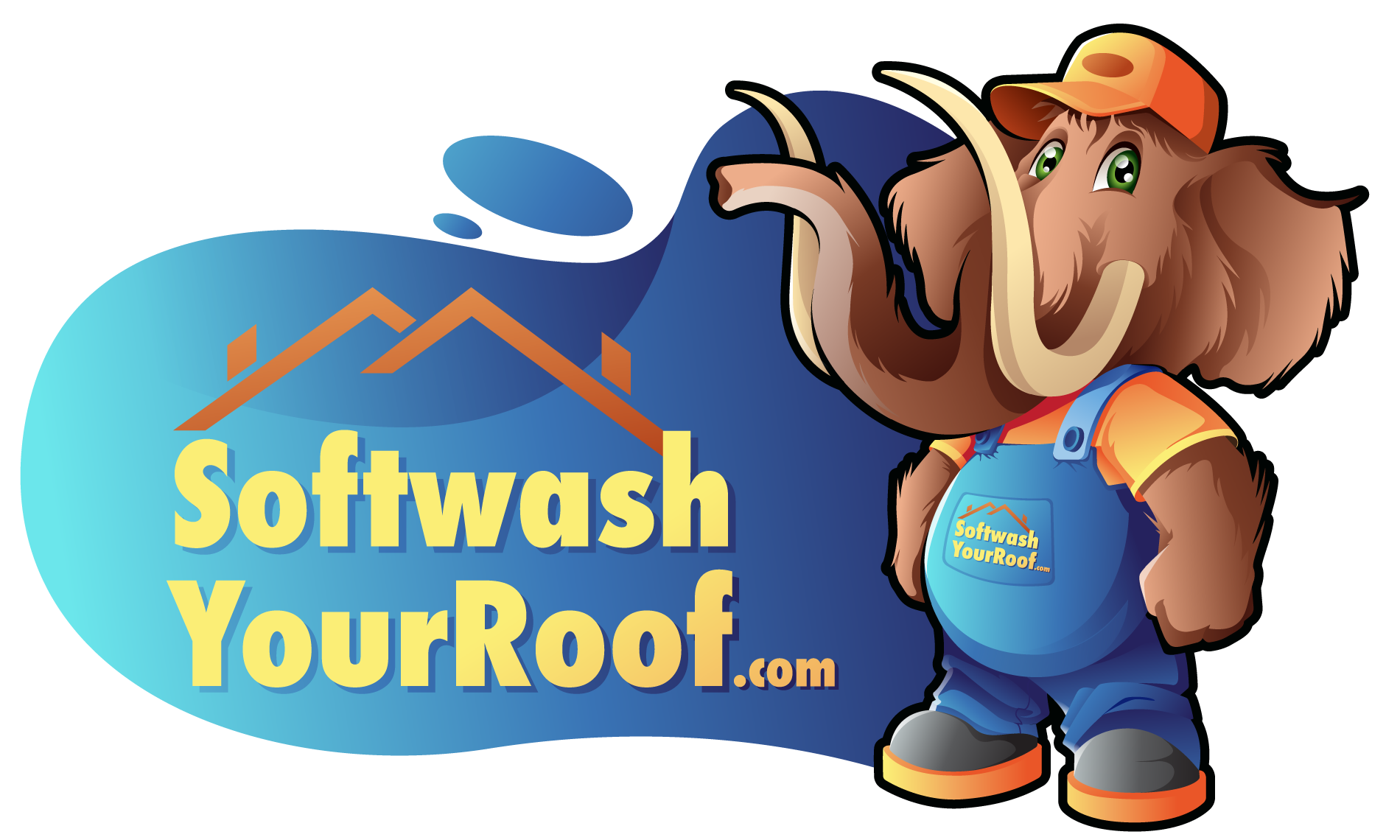
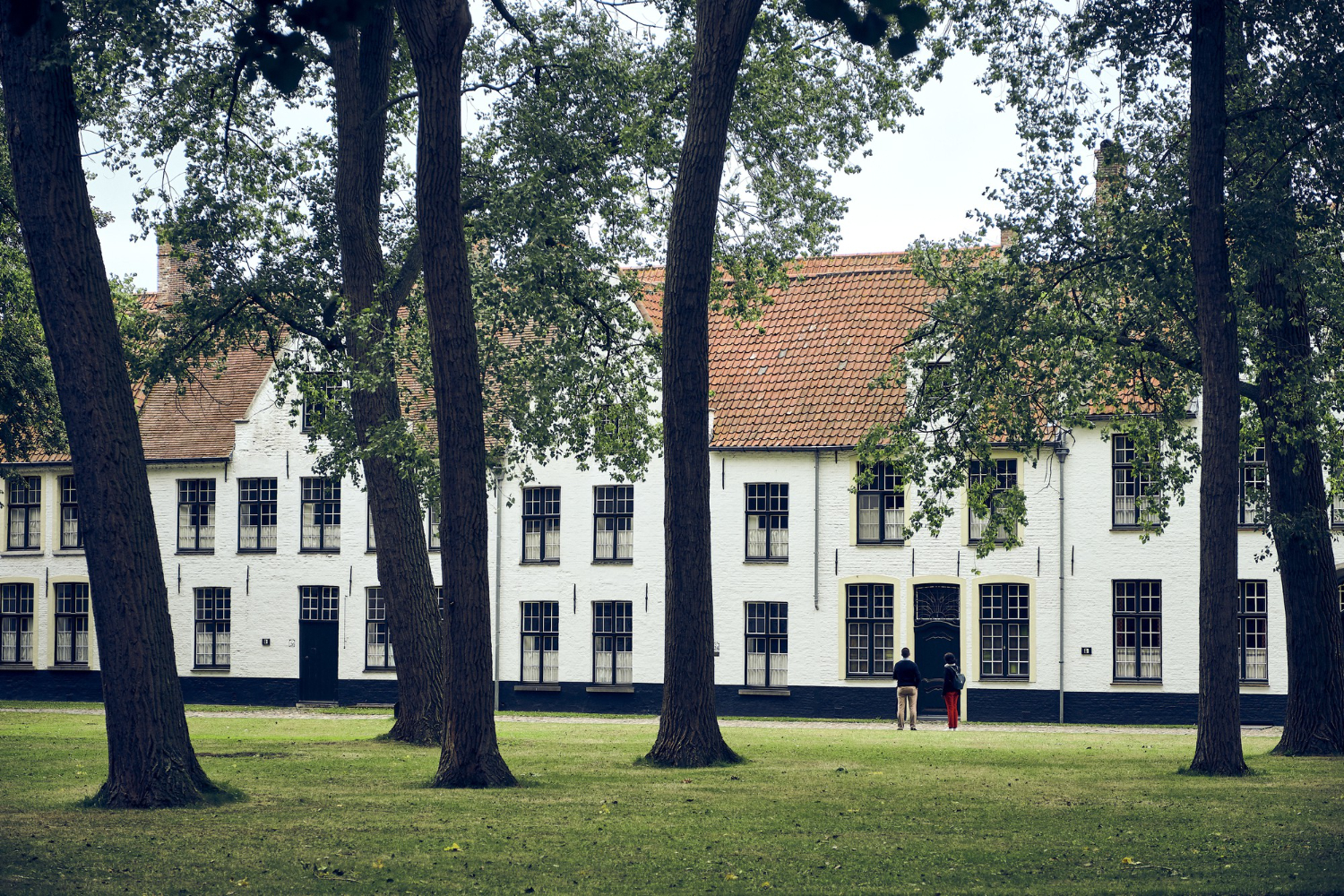
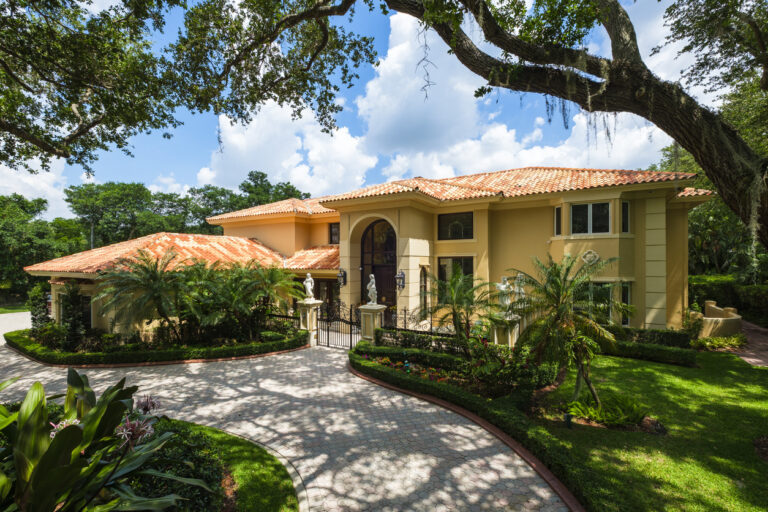

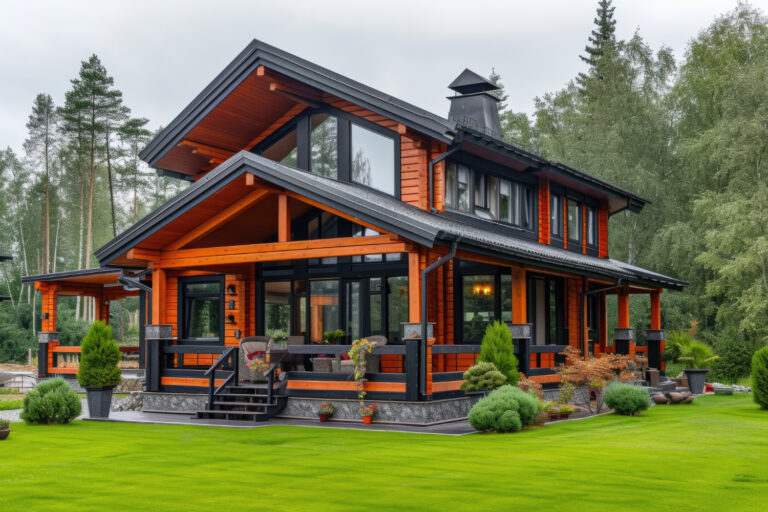
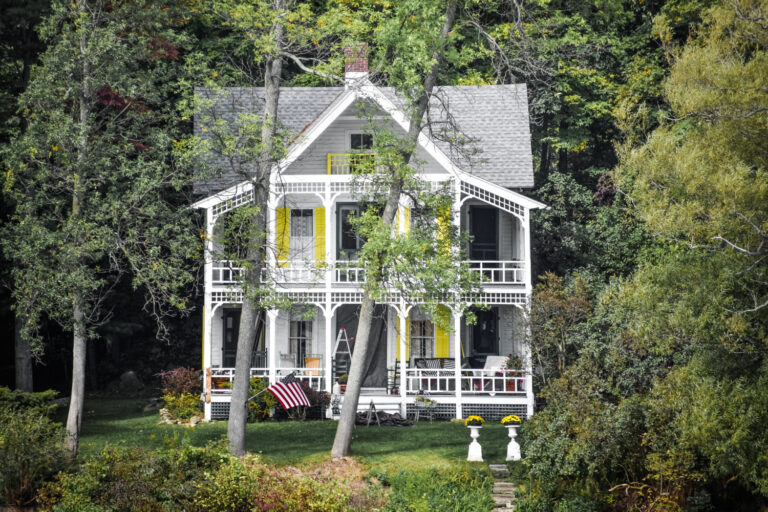

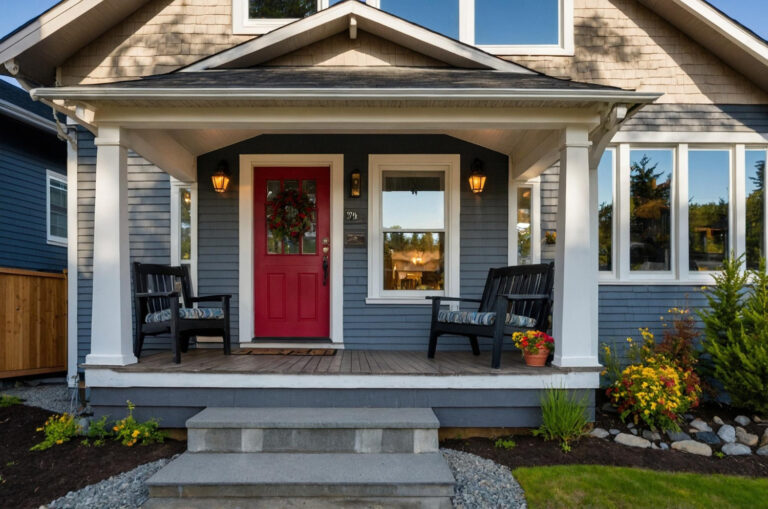

3 Comments
Comments are closed.